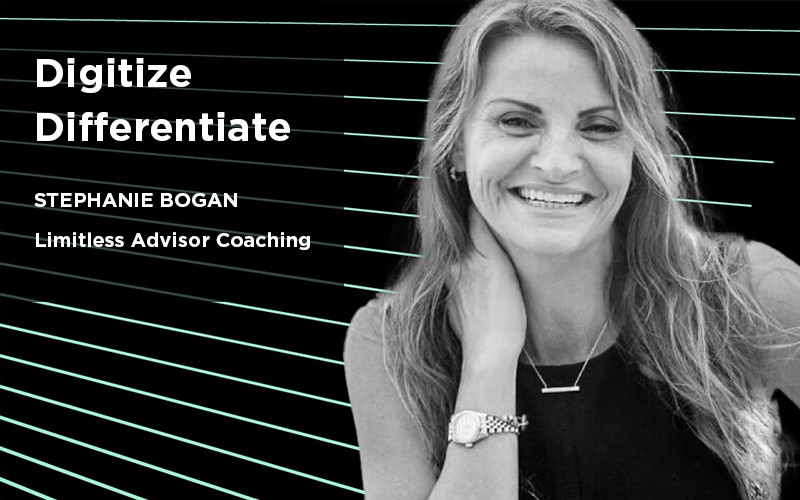The first conversation an advisor has with a surviving spouse shouldn’t be after a client has died. There are many reasons to include both spouses in financial planning conversations, yet many advisors fail to do so. Spouses often look at investing and retirement in different ways, and focusing solely on the beliefs and goals of one spouse can end up being a huge disservice to the other spouse (usually the wife). It’s also bad for business.
Let’s talk widows and the cost of excluding wives from financial planning conversations
Both women and men can end up as surviving spouses but we all know women live longer on average than men. According to 2021 data from the CDC, the current life expectancy for women (79.3 years) is nearly 6 years longer than the life expectancy for men (73.5 years). And barring any new, wild and crazy pandemics or other global disasters, life expectancy will continue to rise.
The cost of excluding wives from financial planning conversations is a big one. For one, this oft quoted statistic should make advisors shiver: SEVENTY percent of women switch advisors following the death of their spouses. Clearly, advisors who fail to build relationships with both spouses are taking a big risk.
Research by LIMRA also revealed that only 30% of women act as the primary financial decision makers in affluent households (those with more than $1 million net worth). If your target market is that $1 million+ household, and you are only talking with the primary decision maker—typically the husband—you’re leaving a lot of wives out of important financial conversations.
And here’s another stat to wrap your brain around. Research by Oliver Wyman revealed that, “Financial services firms can capture more than $700 billion in additional annual revenue by serving women better, according to the Oliver Wyman 2020 Women in Financial Services report. This estimate is greater than the annual revenue of the largest financial institutions globally.” Huh.
Spouses aren’t always on the same page regarding financial planning
This explains why so many widows quit their financial advisors after their spouses pass away. InsurMark Virtual CMO Jack Martin and guests Michael Harris and Steve Gresham, senior education advisors for the Alliance for Lifetime Income (ALI) ,took a deep dive into this topic during a recent episode of The Breakthrough Advisor Podcast. Both Harris and Gresham have decades of investing and financial planning experience under their belts.
If you’re unfamiliar with ALI, the organization is a not-for-profit that focuses on educating people about the importance of having enough protected income available during their lifetime, especially in retirement. According to Gresham, “The Alliance, at the end of the day, is a champion of the consumer.”
In order to best serve consumers, the organization conducts extensive research to better understand them, what they’re thinking, what their financial goals include and what keeps them up at night. Recently, ALI conducted research to pinpoint different types of investor personas based on the personal values, emotions and benefits they expect, along with financial solutions that align with those factors.
When considering the different investor personalities of spouses, ALI found one combination came up quite frequently, the Cautious Preparer, who is looking for long-term security, low risk, hands-off approach to investing and the Self-Directed Investor, who is highly confident, can do it on his own and doesn’t believe in annuities or managed accounts.
During the podcast, Gresham explained what often happens when the wife is a Cautious Preparer and her self-directed husband dies. “In these scenarios, when he passes away, she actually acquires both a managed account and a couple of annuities because she wants to have a solution that was something she could be more comfortable looking at because she didn’t have to manage it.”
Now, if the advisor wasn’t engaging with the wife prior to the husband’s death and wasn’t addressing her concerns as a Cautious Preparer, that advisor is probably going to be among the 70 percent that widows fire after their husbands die. If a couple’s portfolio is built around the husband’s needs, desires and goals only and doesn’t include a plan for transitioning that plan should the husband pass first, that widow is going to find an advisor who will create a plan that works for her.
More consumers are looking to protect assets they’ve accumulated
Another interesting insight that ALI’s research revealed is a disconnect between how most advisors are serving clients and what consumers want in today’s world. The world and what consumers want has changed, and advisors need to change their approach to be successful. For example, more consumers are warming up to the idea of protected income solutions, while many advisors are still hesitant to promote them.
As Gresham explains, “When I started, everyone was a stockbroker. So, you sold a product, and then you moved on. And then an entire legion took over from there, because the consumer led us away from that. We were just chasing the consumer. The consumer wanted more consistent performance. They wanted transparency of the product solution. And that’s how we got to what most advisors are using today, which is some form of asset management solution.”
But a managed account is not a retirement plan. What ALI found through its research is that most people are now looking for opportunities to protect what they’ve accumulated. “The theme keeps coming up over and over and over again. Protect, protect, protect. And our industry needs to change its view of retirement as something that is just a new stage for the client. The client sees an actual terminal point to it all,” Gresham says.
How can advisors use investor personas to serve ALL clients better?
Another thing we love about ALI is the tools they provide for advisors to help consumers create a more secure financial future. Based on the different personas they’ve developed (which include both single individuals and married couples), ALI created an Investor Personality Quiz clients can take to determine which investing style describes them best.
Even better, ALI also created a guide that advisors can refer to that provides insights on the different personas along with sample discovery questions and approaches to consider for their client consultations. You can grab the Client Conversation Profiles Guide, here. (It’s free.)
Now, not every consumer is a good fit for protected income, and ALI realizes this. They don’t recommend annuities as a solution for all of the investor personas. However, more investors, as noted above, are looking to protect their assets, futures and peace of mind with options like protected income.
Imagine if you had a conversation with a couple and were able to get a better understanding of both their mutual and individual fears, risk tolerances, goals and expectations? The Investor Personality Quiz is a great conversation starter, especially with the insight offered in ALI’s aforementioned guide.
Investing in a relationship with both spouses is critical because it allows advisors to build trust and serve both parties better. It also helps ensure the advisor maintains a relationship with the surviving spouse for many years after the first spouse dies.
But wait, there’s more!
Martin, Harris and Gresham had a whole lot more to say about investor personas, their influence on financial decision-making and the value of involving other family members in the financial planning process. Check out the full podcast for more details.
To learn more about the resources, investment products, marketing technology and other services InsurMark offers financial professionals, contact us at (800) 752-0207 or connect with us online.
As an ADO – Advisor Development Organization™, InsurMark provides solutions to meet the ever-evolving needs of financial professionals with a mission to protect and enhance the financial security of every home in America.



